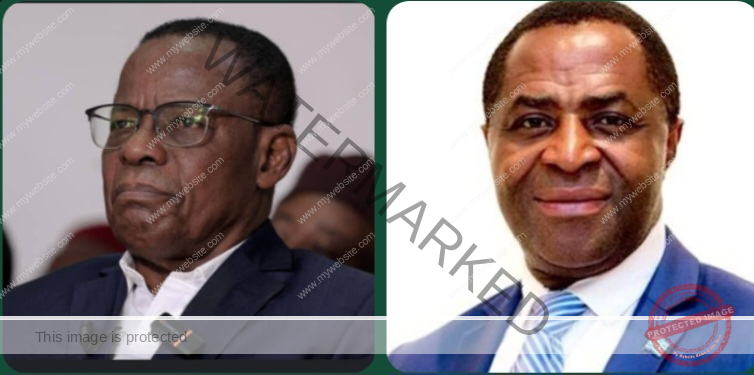Prof, Maurice Kamto, and Seseku Ayuk Tabe, jailed in same environment, Was not by chance. Reports suggested that, Kamto would lead the post-Biya era, while Sisiku would help negotiate an end to the Ambazonian conflict
By The Independentist – Political Analysis Desk
In the years after the disputed 2018 presidential election, Professor Maurice Kamto rose to prominence as one of Cameroon’s most visible and credible opposition leaders. A skilled lawyer, former minister, and respected international negotiator, he launched an ambitious diplomatic tour, visiting some of the world’s leading democracies — Washington, Paris, Brussels, Ottawa, and Berlin. In each city, he met with policymakers and diplomats, positioning himself as the man who could lead Cameroon into a democratic future.
To the international community, Kamto appeared to be a statesman in waiting. To President Paul Biya and the ruling CPDM elite, however, he was an emerging threat — someone capable of mobilising both domestic discontent and foreign goodwill against the regime.
The Prison Encounter with Sisiku Ayuk Tabe
Kamto’s arrest followed, but it was no ordinary detention. His incarceration placed him in the same environment as Sisiku Ayuk Tabe, the jailed leader of Ambazonia’s interim government. Reports suggest that the two men engaged in discussions about a possible political understanding: Kamto would lead La République du Cameroun in a post-Biya era, while Sisiku would help negotiate an end to the Ambazonian conflict — not with full independence, but on terms more favourable to Yaoundé.
Such an arrangement, if successful, would have been a political earthquake. It offered the possibility of ending the war while boosting Kamto’s path to the presidency. But it also bypassed Biya’s inner circle, gave Kamto direct access to an Ambazonian leader, and threatened to disrupt the succession plans guarded closely by the CPDM establishment.
Biya’s Countermove
President Biya acted quickly to neutralise the threat. Legal cases were prolonged to keep Kamto tied up in court. State-controlled media limited his visibility. Rival opposition figures were quietly encouraged to weaken his influence. Electoral rules were applied to restrict his chances. And the informal channel between Kamto and Sisiku was cut off, ensuring that no resolution to the Ambazonian conflict could be achieved without Biya’s control.
Sako’s Position on the Talks
President Dr. Samuel Ikome Sako of the Ambazonian interim government has been clear: no agreement is acceptable if it keeps Ambazonia under the authority of La République. Any settlement must recognise Ambazonia’s full independence, not simply repackage colonial rule under a different form.
A Lesson for Ambazonians
Kamto’s political demise serves as a warning to Ambazonians. Yaoundé will never willingly allow an honest settlement that undermines CPDM power. Any leader who tries to work within their system risks being used, betrayed, and discarded when they are no longer useful.
If Kamto believed the prison dialogue had the regime’s blessing, ending it was a double-cross. If his international diplomacy was tolerated only to be turned against him, it was a betrayal.
The episode confirms two unchanging truths about politics in La République du Cameroun:
No one is allowed to outshine the President.
No resolution to the Ambazonian conflict will be permitted if it threatens the CPDM’s hold on power.
The Independentist – Political Analysis Desk

